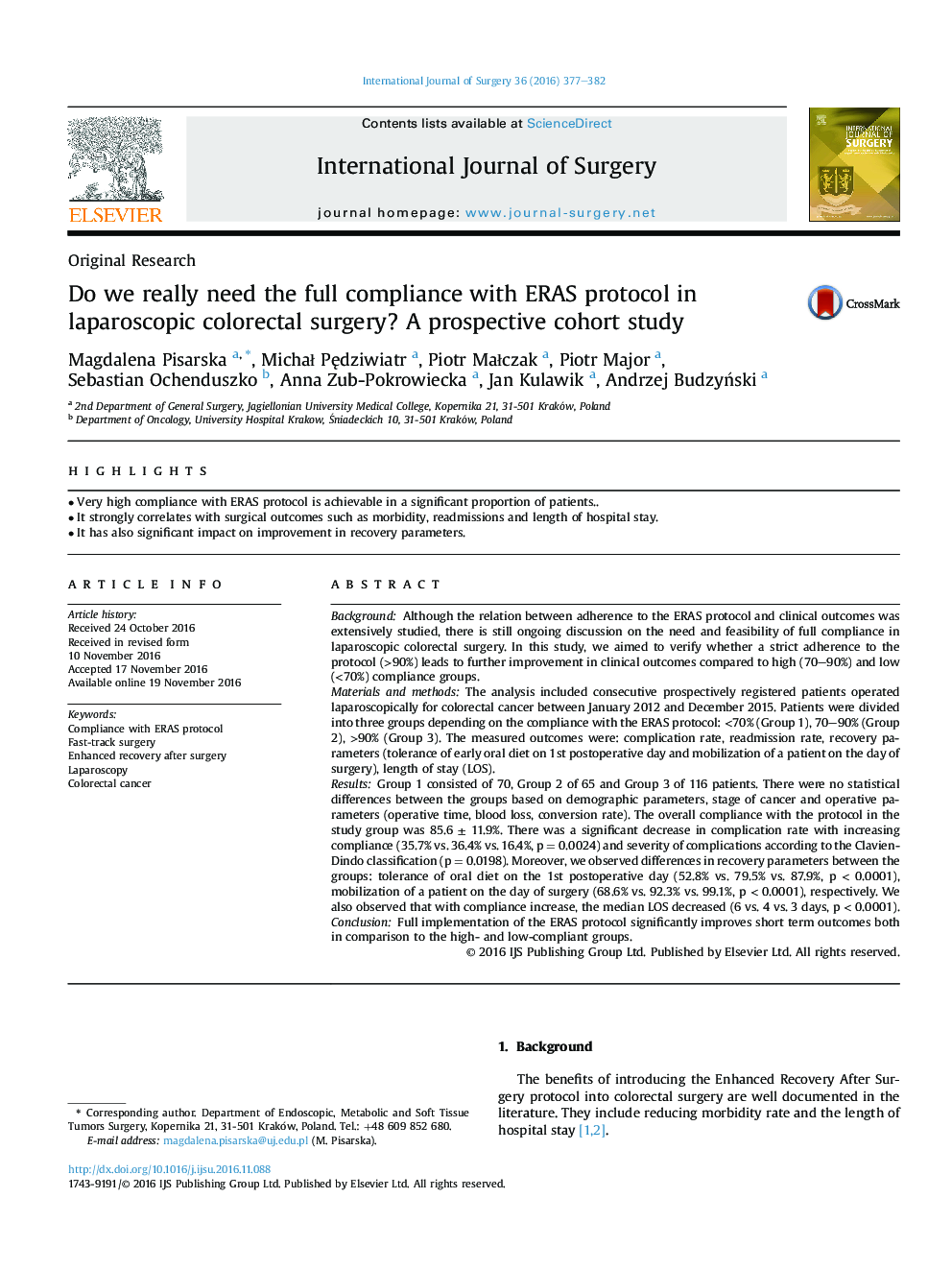| کد مقاله | کد نشریه | سال انتشار | مقاله انگلیسی | نسخه تمام متن |
|---|---|---|---|---|
| 5731922 | 1611947 | 2016 | 6 صفحه PDF | دانلود رایگان |

- Very high compliance with ERAS protocol is achievable in a significant proportion of patients..
- It strongly correlates with surgical outcomes such as morbidity, readmissions and length of hospital stay.
- It has also significant impact on improvement in recovery parameters.
BackgroundAlthough the relation between adherence to the ERAS protocol and clinical outcomes was extensively studied, there is still ongoing discussion on the need and feasibility of full compliance in laparoscopic colorectal surgery. In this study, we aimed to verify whether a strict adherence to the protocol (>90%) leads to further improvement in clinical outcomes compared to high (70-90%) and low (<70%) compliance groups.Materials and methodsThe analysis included consecutive prospectively registered patients operated laparoscopically for colorectal cancer between January 2012 and December 2015. Patients were divided into three groups depending on the compliance with the ERAS protocol: <70% (Group 1), 70-90% (Group 2), >90% (Group 3). The measured outcomes were: complication rate, readmission rate, recovery parameters (tolerance of early oral diet on 1st postoperative day and mobilization of a patient on the day of surgery), length of stay (LOS).ResultsGroup 1 consisted of 70, Group 2 of 65 and Group 3 of 116 patients. There were no statistical differences between the groups based on demographic parameters, stage of cancer and operative parameters (operative time, blood loss, conversion rate). The overall compliance with the protocol in the study group was 85.6 ± 11.9%. There was a significant decrease in complication rate with increasing compliance (35.7% vs. 36.4% vs. 16.4%, p = 0.0024) and severity of complications according to the Clavien-Dindo classification (p = 0.0198). Moreover, we observed differences in recovery parameters between the groups: tolerance of oral diet on the 1st postoperative day (52.8% vs. 79.5% vs. 87.9%, p < 0.0001), mobilization of a patient on the day of surgery (68.6% vs. 92.3% vs. 99.1%, p < 0.0001), respectively. We also observed that with compliance increase, the median LOS decreased (6 vs. 4 vs. 3 days, p < 0.0001).ConclusionFull implementation of the ERAS protocol significantly improves short term outcomes both in comparison to the high- and low-compliant groups.
Journal: International Journal of Surgery - Volume 36, Part A, December 2016, Pages 377-382